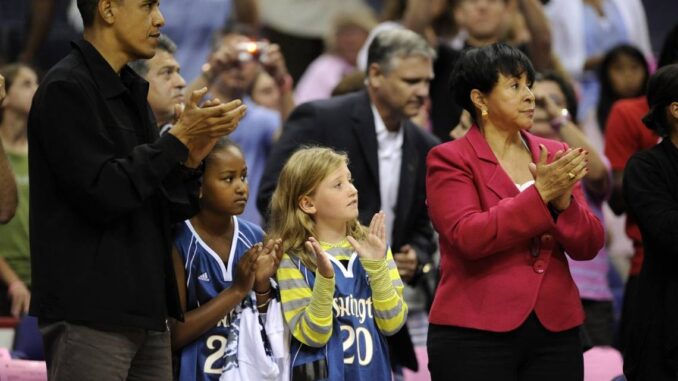
Caitlin Clark, a standout player for the Indiana Fever, was recently honored as Time Magazine’s Athlete of the Year for 2024. This accolade follows her impressive tenure with the Iowa Hawkeyes and a record-setting rookie season in the WNBA. However, the recognition has sparked debate within the basketball community.
Sheila Johnson, co-owner of the Washington Mystics, expressed reservations about Time’s decision. She suggested that the magazine should have featured the entire WNBA rather than focusing solely on Clark. Johnson stated, “This year, something clicked with the WNBA and it’s because of the draft of players that came in. It’s not just Caitlin Clark, it’s (Angel) Reese (as well). We have so much talent out there.”
In response to such critiques, Lisa Bluder, Clark’s former coach at Iowa, defended her former player’s impact on women’s sports. Bluder emphasized that Clark’s prominence benefits the entire sport, stating, “When Caitlin’s light shines on her, it shines on all of us. And I think everybody else needs to embrace that a little bit better.”
Clark’s influence on women’s basketball is undeniable. Her exceptional skills have drawn significant attention to the sport, leading to increased viewership and attendance. This phenomenon, often referred to as “The Caitlin Clark effect,” has been particularly beneficial for teams like the Washington Mystics. Notably, 31% of the Mystics’ 2024 home attendance was attributed to two games against Clark’s Indiana Fever.
Beyond her on-court achievements, Clark has been vocal about social issues. In her Time Magazine interview, she acknowledged the foundational role of Black players in the WNBA and recognized her own white privilege. Clark stated, “I want to say I’ve earned everything, but as a white person, there is privilege.”
This acknowledgment received mixed reactions. Conservative commentator Megyn Kelly criticized Clark’s remarks as “condescending” and “fake.” In contrast, Clark’s teammate, Temi Fagbenle, defended her, suggesting that Clark should be afforded some grace as she navigates her role as an athletic icon.
The discussions surrounding Clark’s recognition highlight broader conversations about individual accolades in team sports and the importance of acknowledging contributions from all athletes. While some advocate for collective recognition, others believe that celebrating standout individuals can elevate the sport as a whole.
In summary, Caitlin Clark’s designation as Time Magazine’s Athlete of the Year has ignited discussions about individual recognition, team dynamics, and social issues within women’s basketball. As the sport continues to evolve, such dialogues are essential in shaping its future trajectory.
Leave a Reply